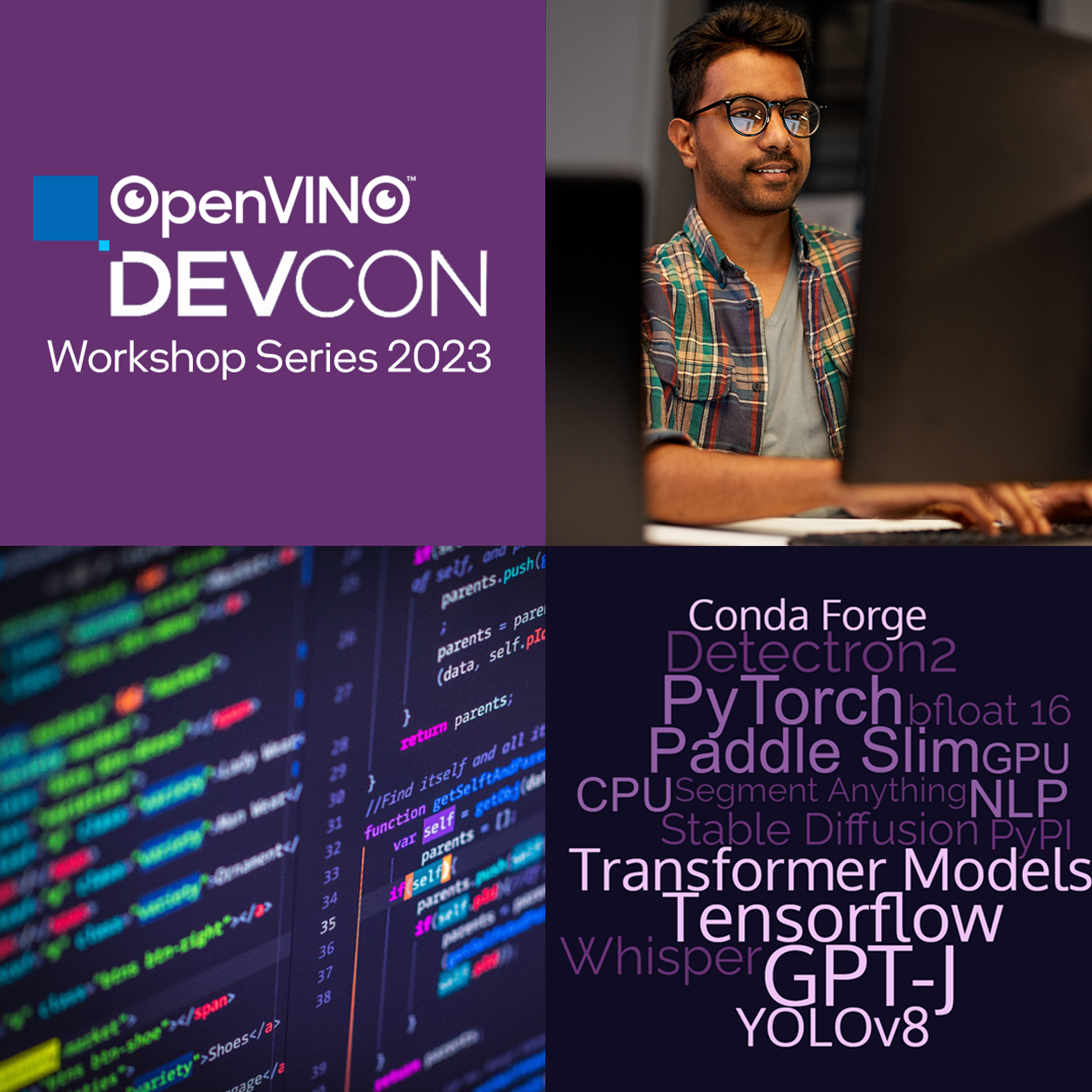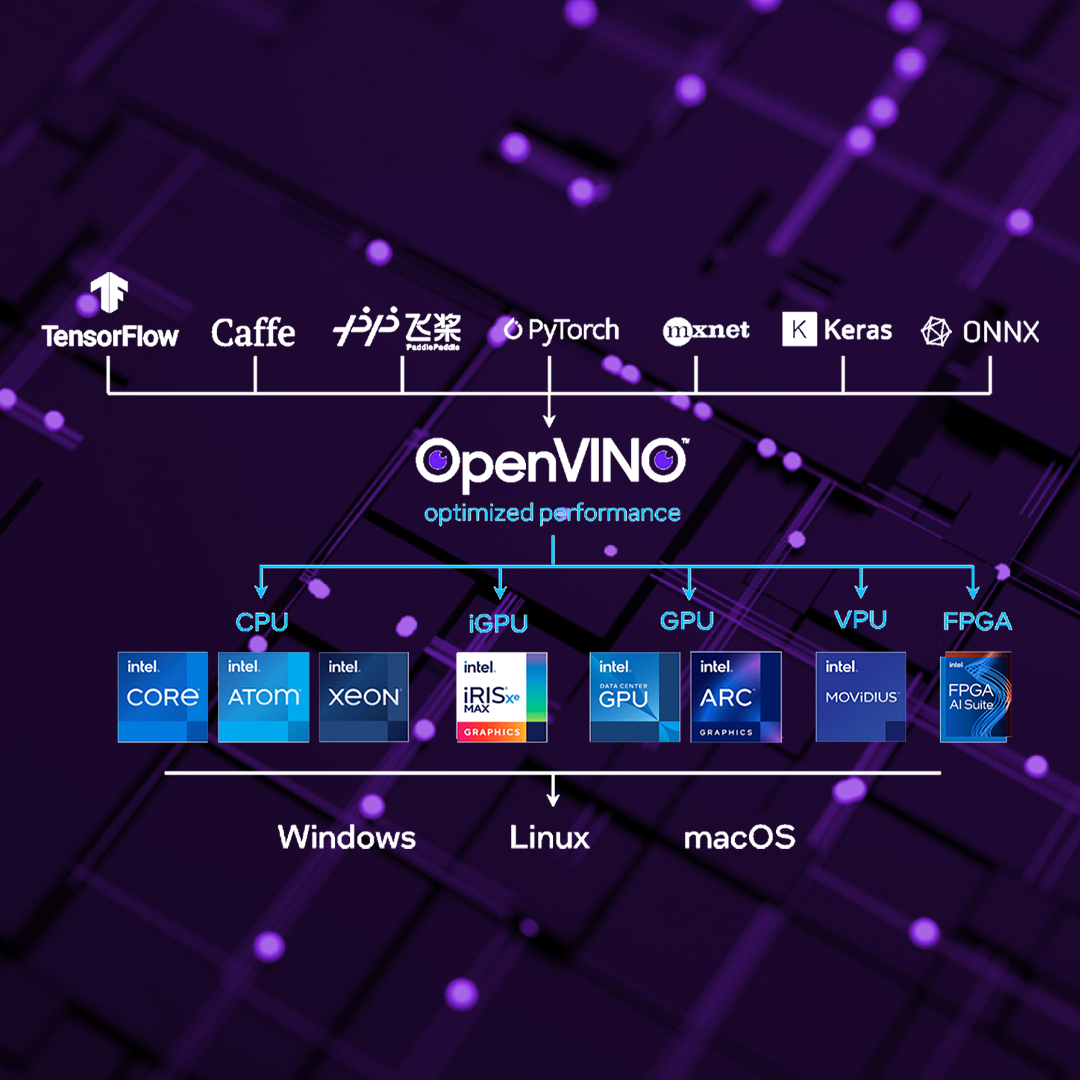OpenVINO™ Toolkit 2023.0: See What’s New
OpenVINO™ toolkit's newest release, 2023.0, marks a significant milestone as it celebrates its 5-year anniversary. Throughout its journey, OpenVINO has expanded its support for models from computer vision to natural language processing, deepening its frameworks integrations, and continuing to increase the portability and performance. The team has overcome new challenges while keeping an eye on the future. We’ll kick things off with a pre-recorded fire side chat with Yury Gorbachev, Intel Fellow, OpenVINO Product Architecture and Ray Lo, global lead of the Intel AI evangelist, discussing the biggest challenges and sharing rare insights from the past and present about the toolkit's evolution.
With this new release, we’ll highlight what’s new, including:
- More integrations like TensorFlow and Pytorch Frontends
- Expanded model support such as Segment Anything, GPT-J, and YOLOv8
- Gaining efficiencies on CPU with thread scheduling
Lastly, we’ll cover the rapid advancements in language processing and what this means for the industry along with the impact on the open-source community. Can anyone really be future proof? Join us for a lively discussion and learn what’s new with OpenVINO.


